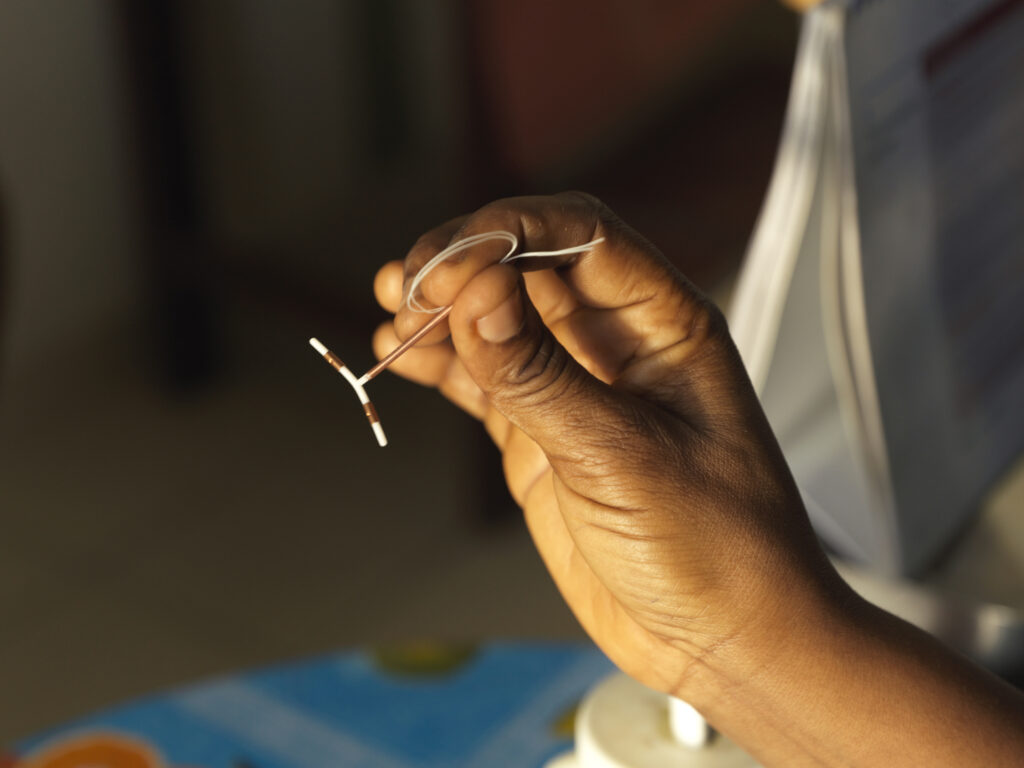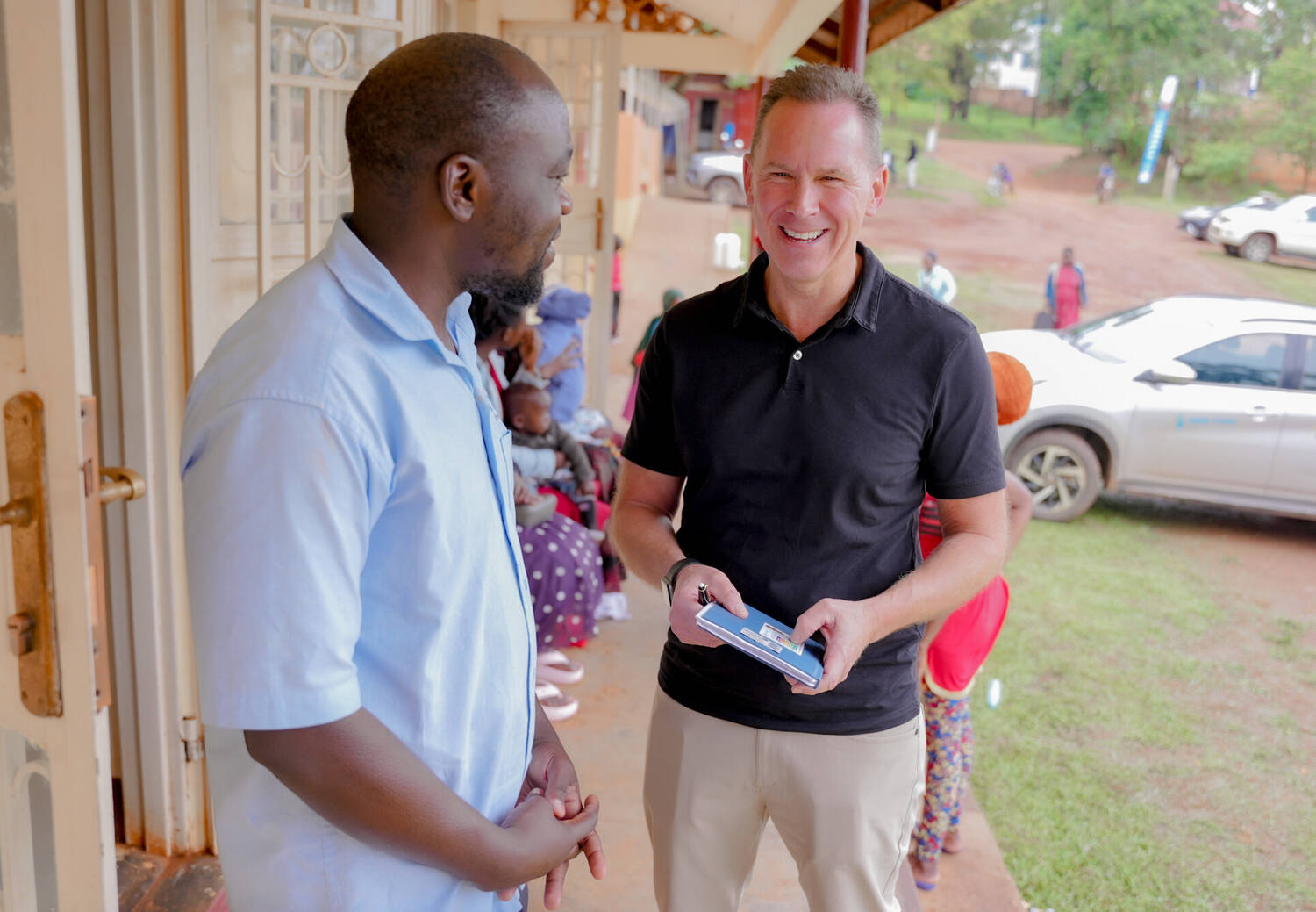
There’s been a major shift in the way our partner organisation in Zimbabwe, Population Services Zimbabwe (PSZ), has been reaching people with quality family planning services. A renewed focus on building sustainable and long-term access to family planning has pivoted their resources into new innovations and ways of delivering services.
As Yeukai Muzenda-Mugabe, Zimbabwe’s Director of Marketing and Commercial Services puts it:
“We want every client to be empowered and just one contact or one hour away from accessing safe and quality healthcare. We’ve evolved in recent years, building a network of family planning services that people can rely on. It’s exciting to see where we’re heading and how many women and girls (and men!) can benefit from accessing these essential services.”
Since its beginning in 1987, PSZ’s core services have included health clinics dotted around Zimbabwe and mobile outreach teams that travel into remote communities to deliver voluntary family planning services. These services are life-changing for those who can access them. But to ensure access is expanded and available for generations to come, these services must be closely linked with other aspects of the health system—including public facilities, private service providers, and the communities they aim to serve.
The PSZ team, grappling with how to build more sustainable access, have diversified their programme to build and strengthen a wider network of family planning services. They’re ensuring that everyone in Zimbabwe will always have a convenient way to access quality care, wherever they are.
Besides their nine clinics, here are three of PSZ’s focus areas to expand access, choice, and quality of family planning in Zimbabwe:
Visiting communities: Mobile outreach teams & community nurses

PSZ is determined to leave no one behind. Their 11 mobile outreach teams drive to around 800 communities in Zimbabwe each year taking a full range of voluntary, high-quality and modern family planning options to people who wouldn’t be able to access it any other way. They also offer cervical cancer screening and HIV testing. This continues to be the most effective way of reaching people who haven’t had access to contraception, and it’s life-changing for individuals in rural, underserved communities.
Their expert travelling teams are locally led and staffed, and their visibility and engagement with the communities they serve means they’re well-known and trusted as a provider of family planning. Part of building this trust is by engaging young people, community leaders, men, and other stakeholders and influencers in supporting access to reproductive health services for all.
On top of that, PSZ have now employed 12 MSI Ladies (community nurses) to visit events and community groups to provide discrete family planning services. The MSI Ladies offer access to those who aren’t served by our outreach teams in rural settings but who also aren’t close to a city clinic. Adolescents have told us they prefer accessing care this way as it offers privacy and convenience.
PSZ’s outreach teams and MSI Ladies have helped more than 520,000 people to access services in the past five years. They’re essential for reaching clients who face the most barriers to accessing family planning—last year, 46% of PSZ’s clients knew of no other option for their service, and 31% weren’t using family planning when they accessed the service. And in 2020, people living with disabilities accessed these outreach services 3x more than the year before.
The outreach teams work closely with public health authorities and facilities, and other health programmes such as HIV outreach services, to reach more people. But PSZ know that for long-term and quality access, it’s crucial to strengthen primary healthcare systems.
Strengthening Zimbabwe’s primary healthcare systems
For many people in Zimbabwe, their closest, affordable provider of reproductive healthcare is a public sector facility. But the services on offer can be limited, the clinics can be short on time or the right supplies, and the staff can lack the training needed to deliver a full range of family planning services.
PSZ have partnered with the Zimbabwe government to provide training and support on family planning in more than 100 public sector facilities.
PSZ’s Operations Director, Dadirai Nguwo, recently spoke about this work:
“People rely on public sector facilities. When we thought about sustainable family planning for the long-term, we realised we could make a lasting impact by using our expertise to build the capacity of health providers and strengthen the entire system. When our work is done in this area, the community will continue to benefit long after we’re gone.”
Since introducing the health system strengthening model back in 2019, the PSZ team have seen a big shift in the facilities they’ve supported. Before, these facilities were offering mostly short-term methods because they didn’t necessarily have the time or capacity to offer more options. Since working with them on providing a more comprehensive range of methods, they’ve seen a rise in the number of people choosing long-term, reversible contraception methods, as well as an overall increase in client numbers.
PSZ are supporting public health facilities in all ten provinces of Zimbabwe, reaching around 230,000 people last year alone. Work in this space may only have just begun, but it’s already proving to be a game-changer.
Putting choice in their hands: Contact centre & private sector partnerships
Delivering on the MSI 2030 strategy to put choice in her hands, PSZ has ramped up ways that clients can be in control of their own care and choices. For example, the team has started a line of affordable, quality reproductive health products—including emergency contraception, condoms, implants, IUCDs, and menstrual health products—that are sold in pharmacies and clinics across Zimbabwe.
Recognising the private sector’s vital role in expanding access to reproductive healthcare, PSZ doesn’t shy away from connecting people to private clinics, pharmacies and services when that’s what is right for them. This is made easier by PSZ’s toll-free Contact Centre. People from any part of Zimbabwe can call or message to speak openly and confidentially about their experiences and choices. It’s especially useful for people who need to find their closest provider, or those who need follow-up care and advice. PSZ has invested in new technology to help increase access to information, and it’s making a difference—last year, they engaged in 55,000 conversations, and launched a new online counselling tool on people’s individual contraceptive options.
As one of the largest reproductive healthcare organisations in Zimbabwe, PSZ is now reaching around 1.6 million people every year through their diversified services, averting an estimated 3,200 maternal deaths since 2018.
But it’s more than the numbers. Central to every aspect of their work is the dedication to meaningful community engagement and partnership. This goes a long way in breaking down social barriers and reaching young people, people living with disabilities and those living in remote and rural places.
Every way of delivering and strengthening services has its role to play. Linking together, they create a safety net of family planning so that everyone in Zimbabwe can have choices about their futures and lives.







